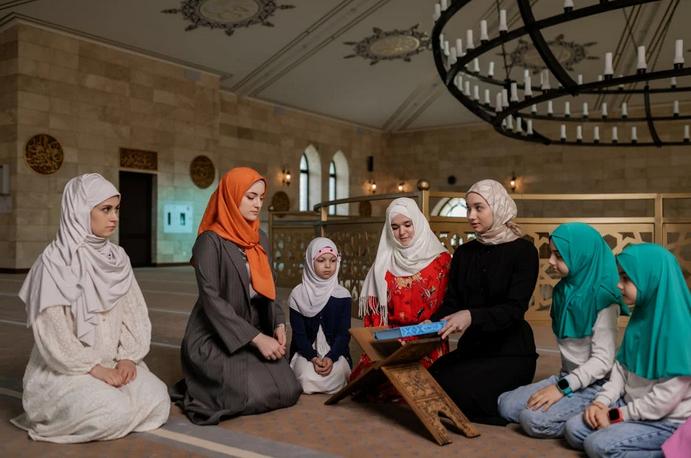Chapter 8: Living with Taqwa (God-Consciousness)
Practical Ways to Cultivate a Deep Awareness of Allah (Taqwa) in Everyday Life, in Actions and Intentions
Introduction
Taqwa, often translated as God-consciousness or piety, is a central concept in Islam that refers to living in constant awareness of Allah’s presence, His commands, and His ultimate judgment. It is the quality that enables a Muslim to consistently strive to please Allah in all aspects of life—whether through worship, interactions with others, or fulfilling personal responsibilities. Taqwa is more than just a feeling or a theoretical understanding of Allah’s existence; it is an active, conscious state of mind and behavior that governs how a Muslim lives their life, from the smallest actions to the grandest decisions.
The Quran speaks of taqwa as the ideal state of being for a believer, and the Prophet Muhammad (PBUH) emphasized its importance in both inner and outward expressions. Allah Himself refers to taqwa as the most important criterion for superiority among humans:
“O mankind, indeed We have created you from male and female and made you peoples and tribes that you may know one another. Indeed, the most noble of you in the sight of Allah is the most righteous of you. Indeed, Allah is Knowing and Acquainted.”
(Surah Al-Hujurat, 49:13)
Living with taqwa requires continuous self-awareness, a commitment to moral and ethical excellence, and the sincere intention to seek Allah’s pleasure above all else. This chapter aims to explore practical ways to cultivate taqwa in everyday life, focusing on how a believer can integrate this essential quality into their actions, intentions, and mindset. By doing so, a Muslim can navigate life’s challenges and uncertainties while remaining steadfast in their faith and devotion to Allah.
1. Understanding Taqwa: The Foundation
Before delving into practical steps for cultivating taqwa, it is crucial to understand what taqwa truly means. The Arabic root of the word taqwa (تقوى) comes from the verb waqā (وقى), which means “to protect” or “to shield.” Taqwa, therefore, is a form of protection—specifically, the protection of one’s soul from the displeasure of Allah and from the temptations of the dunya (worldly life). Taqwa entails an active safeguarding of one’s heart, thoughts, actions, and relationships in a manner that aligns with Allah’s commands.
A. The Quranic and Prophetic Definition of Taqwa
In the Quran, Allah commands believers to have taqwa, describing it as an essential trait of those who succeed in both this world and the hereafter:
“O you who have believed, fear Allah and speak words of appropriate justice. He will then amend for you your deeds and forgive you your sins. And whoever obeys Allah and His Messenger has certainly attained a great attainment.”
(Surah Al-Ahzab, 33:70–71)
Taqwa is therefore about obedience to Allah’s commands, avoiding His prohibitions, and always striving to maintain a state of awareness of Allah’s presence. This awareness shapes how a Muslim interacts with their environment, people, and even their own thoughts.
B. The Role of Taqwa in Islam
Taqwa is not just a theoretical concept; it is meant to be reflected in the life of the believer. It affects a Muslim’s thoughts, speech, behavior, and emotions. It compels a believer to avoid major sins and strive to purify their soul by performing acts of worship sincerely and regularly. It is a life-long commitment to pleasing Allah and growing spiritually, as the Quran reminds:
“Indeed, those who have believed and done righteous deeds— they are the best of creatures. Their reward with their Lord is Gardens of Eternity beneath which rivers flow, wherein they will abide forever, Allah being pleased with them, and they with Him.”
(Surah Al-Bayyina, 98:7–8)
This chapter will provide practical steps to help believers attain taqwa, grounded in both the teachings of the Quran and the example of the Prophet Muhammad (PBUH).
2. Practical Steps to Cultivate Taqwa in Everyday Life
A. Regular Worship and Connection with Allah
The first and most essential step in living with taqwa is to establish regular worship. Prayer (Salat) is the most fundamental act of worship that connects a Muslim to Allah throughout the day. However, taqwa requires that this prayer be performed with sincerity, concentration, and mindfulness.
- Concentration in Prayer (Khushu’): A believer should strive to perform their prayers with the utmost concentration and devotion, avoiding distractions. Khushu’, the humility and focus during prayer, is central to cultivating taqwa. The Prophet Muhammad (PBUH) said:
“The prayer of a person will be accepted if he focuses his heart on it and completes its actions properly, without being distracted by anything.”
(Sahih al-Bukhari)
- Consistency in Acts of Worship: Along with Salat, regular recitation of the Quran, remembrance of Allah (dhikr), and seeking forgiveness through sincere repentance (tawbah) are critical. The Quran emphasizes the importance of remembrance:
“Indeed, in the remembrance of Allah do hearts find rest.”
(Surah Ar-Ra’d, 13:28)
- Voluntary Worship (Nafl): In addition to the obligatory acts, engaging in voluntary worship—such as fasting on Mondays and Thursdays, praying extra prayers (like Tahajjud), and giving charity—helps purify the soul and fosters a deeper connection to Allah. These acts increase the awareness of Allah in one’s life.
B. Acting with Sincerity and Purity of Intention (Ikhlas)
Taqwa requires that all actions be done with sincerity for the sake of Allah alone. The Prophet Muhammad (PBUH) taught that actions are judged by intentions (niyyah), and that purifying one’s intentions is key to pleasing Allah. A person’s deeds, no matter how small or large, are valued based on the intention behind them. For instance:
“Indeed, actions are judged by intentions, and for every person is what he intended.”
(Sahih al-Bukhari)
- Daily Life as an Act of Worship: Cultivating taqwa means approaching all aspects of life as an opportunity to please Allah. Whether it’s work, family responsibilities, or community service, every act done with the correct intention can become an act of worship. For example, earning a lawful living (halal) with the intention to support one’s family and contribute to society can be an act of worship if done for the sake of Allah.
- Avoiding Riya (Showing Off): One of the key obstacles to sincerity in action is riya, or doing good deeds for the sake of public recognition. To maintain sincerity, a Muslim should always evaluate their intentions and ensure that their actions are truly for Allah’s pleasure, without expecting praise or admiration from others.
C. Striving to Avoid Sin and Guarding One’s Heart
A critical aspect of living with taqwa is consistently guarding oneself from the displeasure of Allah by avoiding both major and minor sins. The Quran describes the believers as those who are conscious of their actions and avoid the ways of wrongdoing:
“Indeed, those who fear Allah—when an impulse touches them from Satan, they remember [Him] and at once have insight.”
(Surah Al-A’raf, 7:201)
- Avoiding Major and Minor Sins: A person striving to live with taqwa should be mindful of their actions and refrain from behaviors that would anger Allah. This includes abstaining from lying, cheating, stealing, slander, gossip, backbiting, and other actions prohibited in Islam. The Prophet Muhammad (PBUH) said:
“Beware! There is a piece of flesh in the body, and if it becomes good, the whole body becomes good; but if it becomes corrupt, the whole body becomes corrupt. That piece of flesh is the heart.”
(Sahih al-Bukhari)
- Guarding the Heart: Since taqwa originates in the heart, a believer must ensure that their heart remains pure by constantly seeking forgiveness for past wrongdoings and avoiding behaviors that darken the heart. The Prophet (PBUH) taught the importance of purification (tazkiyah) to maintain a state of taqwa.
- Repentance (Tawbah): When a Muslim slips or falls into sin, sincere repentance is essential. Repentance not only cleanses the heart but also strengthens the awareness of Allah, as the act of seeking forgiveness keeps the believer mindful of their accountability before Allah.
D. Seeking Knowledge and Reflection
Taqwa is not merely about external actions but also about internal knowledge and reflection. The more a Muslim knows about Allah, His attributes, and the teachings of the Quran and Sunnah, the deeper their consciousness of Allah becomes. Knowledge strengthens taqwa by illuminating the heart and mind and increasing the believer’s sense of awe and reverence toward their Creator.
- Studying the Quran: The Quran is the ultimate guide for developing taqwa. Reflecting on its verses, especially those related to the fear and love of Allah, helps instill a deeper consciousness of His presence. Allah says:
“This is the Book about which there is no doubt, a guidance for those conscious of Allah.”
(Surah Al-Baqarah, 2:2)
- Contemplating Creation: The natural world is filled with signs of Allah’s power and majesty. Reflecting on Allah’s creation—whether it’s the stars in the sky, the vast oceans, or the human body—reminds the believer of Allah’s greatness and deepens their consciousness of Him.
3. Taqwa in Relationships and Social Interactions
Taqwa also manifests in the way Muslims interact with others. The Prophet Muhammad (PBUH) emphasized good character as a hallmark of a person with true taqwa. He said:
“The most complete of the believers in faith are those with the best character.”
(Sunan al-Tirmidhi)
- Honesty and Integrity: Living with taqwa requires practicing honesty and integrity in all dealings, whether personal or professional. The Prophet Muhammad (PBUH) emphasized the importance of truthfulness in speech and actions.
- Kindness and Compassion: Taqwa also manifests in showing kindness, empathy, and compassion toward others, especially toward those in need. The Prophet (PBUH) stated:
“None of you truly believes until he loves for his brother what he loves for himself.”
(Sahih Muslim)
- Justice and Fairness: A believer who lives with taqwa will also strive for justice, both in their personal life and in society. Islam calls for fairness and equity, particularly in dealings with others, as taqwa enhances a person’s moral compass.
Conclusion
Living with taqwa is a comprehensive and ongoing process that affects every aspect of a Muslim’s life. It requires a combination of sincerity, discipline, and mindfulness of Allah in one’s actions, intentions, and interactions. By cultivating a deep awareness of Allah through regular worship, the purification of one’s intentions, avoiding sin, seeking knowledge, and fostering good character, a Muslim can live a life that is pleasing to Allah and beneficial to themselves and others. Taqwa is the foundation upon which a believer builds a life of righteousness, peace, and spiritual fulfillment.
Ultimately, taqwa is the key to living a balanced and meaningful life, where every action, big or small, is done with the consciousness of Allah’s presence and His ultimate judgment. By striving to live with taqwa, a Muslim aligns their will with that of Allah, finding peace in their heart and success in the hereafter.


